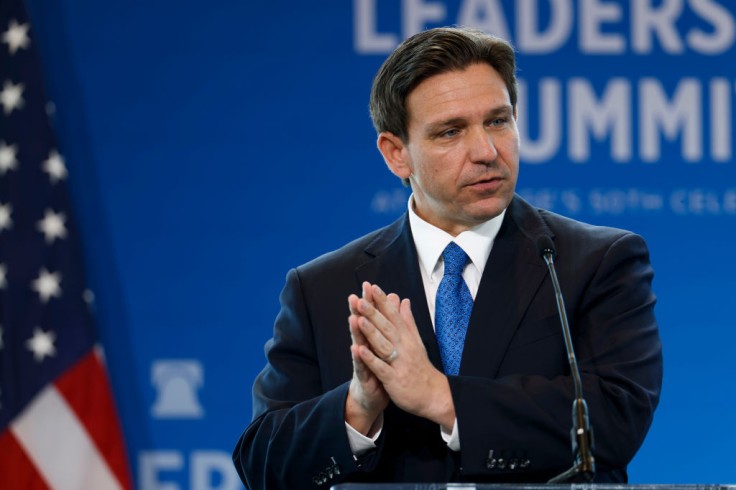
Florida Governor Ron DeSantis has been drawing attention with his recent conservative education policies. The governor frequently boasts about the success of his state's education system.
However, as a probable GOP candidate in the 2024 presidential election, DeSantis has been heavily promoting another education record, which some experts worry could ultimately weaken the quality of education in the state.
Moreover, Florida's education system has recently stirred controversy as the state has rejected proposals to teach gender identity and African American studies in schools.
Additionally, CBS has reported that Republican State Representative Stan McClain has sponsored a bill prohibiting teachers from discussing menstruation and other sex education topics in elementary schools.
DeSantis' Conservative Education
Florida's higher education system is often praised for its affordability and success rates.
According to U.S. News, with 12 public universities or colleges and 28 community and state colleges, the system provides access to education for roughly 1 million students. Despite its size, in-state tuition and fees are kept at less than $5,000 on average for four-year institutions, making it an attractive option for many students.
Furthermore, a significant percentage of students are able to graduate from four-year degree programs on time, with nearly three-quarters meeting this benchmark.
In two-year programs, more than half of students graduate in a timely manner. The state reports a high school graduation rate of 90%, which is above the national average. Nearly half of all students meet college readiness benchmarks on the SAT or ACT, indicating that they are well-prepared for postsecondary education.
However, Governor Ron DeSantis has recently been promoting a controversial agenda that could undermine trust in the state's public education systems. His platform seeks to limit education about topics related to race, LGBTQ issues, and gender identity and impose conservative values on higher education.
This has led to concerns that the governor's agenda could cause significant harm to the public education system that has made Florida stand out.
Critics argue that the governor's focus on these divisive issues is dangerous and could have a negative impact on the education system.
Additionally, the state has implemented significant legislative changes to K-12 and higher education operations, which some believe could also negatively affect the system.
Rejecting Gender Identity and African American Studies
Recently, the Governor of Florida, Ron DeSantis, has reiterated the state's rejection of a proposed nationwide advanced African American studies course, claiming that it promotes a political agenda instead of providing education.
The Florida Department of Education informed the College Board, which develops AP courses that allow high school students to earn college credit, that the course would be banned unless changes were made, according to the Associated Press.
In response, Governor DeSantis has stated that his administration wants education, not indoctrination. He has expressed concern that the course promotes the idea that modern American society oppresses minorities and women, includes a chapter on "Black Queer Studies" that the administration finds inappropriate, and uses articles by critics of capitalism.
This decision has faced a wave of backlash across the country from other state lawmakers, labor unions, and even potential lawsuits.The rejection of the course has sparked discussions about the importance of education and the role of politics in the classroom.
Moreover, CNN has reported that Florida's state education board voted last month to expand the scope of a contentious state law prohibiting teaching about sexual orientation and gender identity in high schools.
The law, which Governor DeSantis signed, prohibited the instruction of these topics from kindergarten through third grade or in a way that was not age-appropriate for all other grades.
The recent decision by the State Board of Education clarifies that, outside of health or reproductive courses, such instruction is inappropriate at any grade level. Teachers who violate this new policy may face suspension or have their teaching licenses revoked.
This decision has also faced criticism and raised concerns about suppressing LGBTQ+ rights and education. Many individuals and organizations have expressed disappointment and worry about the impact of these decisions on students' education and their ability to learn about different perspectives and histories.